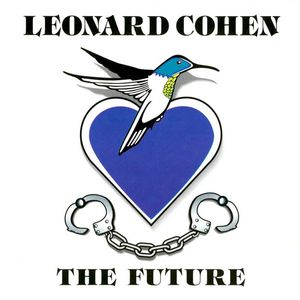
..:: audio-music dot info ::.. |
| A l b u m D e t a i l s |
 |
Label: | Columbia Records |
| Released: | 1992.11.24 | |
| Time: |
59:37 |
|
| Category: | Folk Rock | |
| Producer(s): | Leonard Cohen, Steve Lindsey, Bill Ginn, Leanne Ungar, Rebecca De Mornay, Yoav Goren | |
| Rating: | ||
| Media type: | CD |
|
| Web address: | www.leonardcohen.com | |
| Appears with: | ||
| Purchase date: | 2015 | |
| Price in €: | 1,00 | |
| S o n g s , T r a c k s |
| A r t i s t s , P e r s o n n e l |
| C o m m e n t s , N o t e s |
This was when the Berlin Wall came down and everyone was saying democracy is coming to the east. And I was like that gloomy fellow who always turns up at a party to ruin the orgy or something. And I said, "I don’t think it’s going to happen that way. I don’t think this is such a good idea. I think a lot of suffering will be the consequence of this wall coming down." But then I asked myself, "Where is democracy really coming?" And it was the U.S.A....So while everyone was rejoicing, I thought it wasn’t going to be like that, euphoric, the honeymoon. So it was these world events that occasioned the song. And also the love of America. Because I think the irony of America is transcendent in the song. It’s not an ironic song. It’s a song of deep intimacy and affirmation of the experiment of democracy in this country. That this is really where the experiment is unfolding. This is really where the races confront one another, where the classes, where the genders, where even the sexual orientations confront one another. This is the real laboratory of democracy.
| L y r i c s |
| M P 3 S a m p l e s |